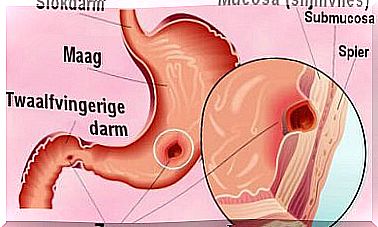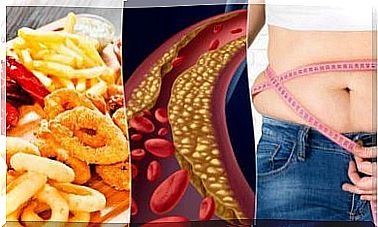What To Do If You Have The Flu

The flu or influenza is one of the most common diseases there is. When you have the flu, it affects your respiratory system and unlike the common cold, the flu can be accompanied by a high fever.
The virus spreads directly through saliva particles and nasal secretions or indirectly through a contaminated object.
The symptoms can appear suddenly and can vary in severity depending on the capacity of a person’s immune system.
This is exactly why, when we are sick at home, we have to follow certain measures to treat the flu, even though it has a natural course in a few days.
Causes of the flu
The flu virus spreads through the air through tiny droplets when infected people cough, talk, or sneeze.
- The chance of contracting the virus is high when, for whatever reason, there is close contact with these droplets.
- People can also contract the virus if they touch a contaminated object and later touch their eyes, nose or mouth.
The flu virus is constantly changing and new strands are formed regularly. The constantly changing nature of the virus is why we can have a different version of the infection even after being vaccinated.
Patients are at high risk of complications in case of:
- chronic respiratory diseases.
- diseases that affect the immune system.
- pregnancy.
- small children or the elderly.
Symptoms of the flu

Unlike a cold, the clinical symptoms of the flu appear shortly after contact with the virus. After being exposed to the virus, symptoms can become apparent within 1 to 7 days.
A high fever is one of the main symptoms of the flu. In most cases, fever ranges from 38.5 C to 41 ºC.
Other symptoms include:
- muscle strain
- Chills and sweats
- Headache
- Constant dry cough
- Fatigue and weakness
- Stuffy nose and runny nose
- Sore throat
How to take care of yourself when you have the flu
Usually cases of the flu are mild and do not require medical intervention.
While you can choose to use pain relievers and antipyretic medications to treat the symptoms, the basis of treatment is some lifestyle habits.
Prevent contamination

First and foremost, you should try to prevent the infection from spreading to other family members.
While it may not be easy to see, the virus can move from one body to another in a matter of seconds.
- Whenever possible, try to keep the infected person isolated or ask them to wear a mask.
- The person should use handkerchiefs to absorb the fluids from the nose and particles that may escape when coughing or sneezing.
- Wash your hands several times a day, especially if you have regular contact with objects that others use.
Do not use antibiotics
Pay attention! Antibiotics are not for the flu, as it does not stem from a bacterial infection.
Taking this type of medication can lead to antibiotic resistance, which can be dangerous for your health.
- You can reduce some symptoms with over-the-counter medicines, such as a fever reducer.
- If you experience any complications, your doctor will decide whether medication is necessary or not.
- You can use certain remedies to relieve certain flu symptoms (you can find them in almost any pharmacy).
Drink lots of fluids

This disease can cause some degree of dehydration as the body has to work harder to regulate temperature and fight off the virus.
So, to avoid dehydration, you need to increase your intake of water, mineral salts and isotonic drinks.
- Soups, juices and herbal teas are a good option.
- You can use homemade saline solutions or buy them from a pharmacy.
Prepare home remedies

The properties of certain home remedies can treat general discomfort, congestion, and other symptoms that result from the flu.
They can be an alternative to conventional medicines or you can choose to use them as an adjunct to your treatment.
Some options include:
- Echinacea, elderflower or ginger tea
- Honey and lemon
- Onion and honey
- Steam of eucalyptus
- Chest massages with essential oils with decongestants (medicine to shrink swollen mucous membranes)
Do you suffer from flu symptoms? You may not be able to make them disappear right away, but these tips will make them less bothersome.









